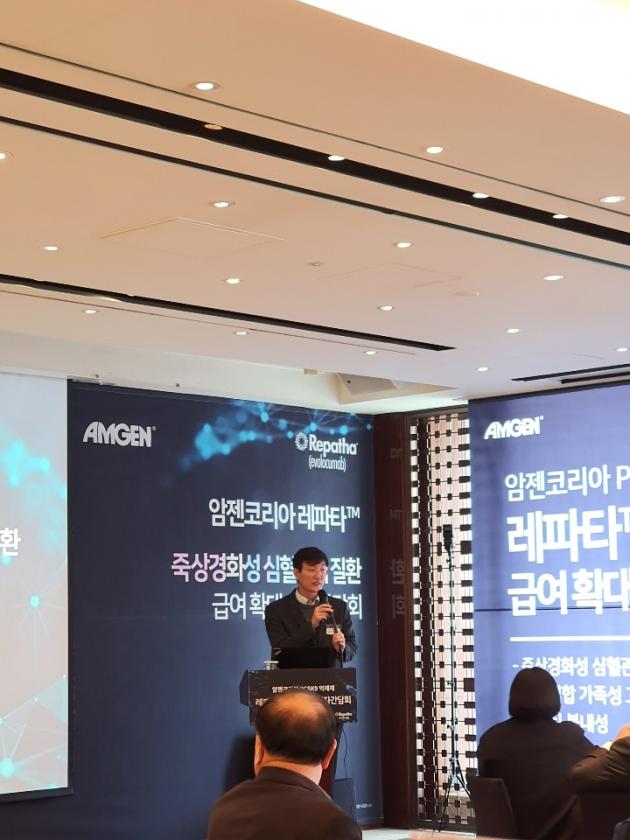Amgen is set to expand treatment options for atherosclerotic cardiovascular disease (ASCVD) patients with Repatha, a high-cholesterol (LDL-C) treatment, after receiving insurance benefits for the drug, the company said Wednesday.

"The reimbursement for Repatha will be able to help lower LDL cholesterol in high-risk groups to prevent the recurrence of cardiovascular disease in patients when used in combination with statins and ezetimibe," said Professor Gwon Hyeon-cheol from the Department of Cardiology at Samsung Medical Center in a news conference Wednesday.
The company received reimbursement for the drug from the Ministry of Health and Welfare on Jan. 1 in treating patients with ASCVD and hypercholesterolemia patients with heterozygous familial hypercholesterolemia and statin intolerance.
The drug inhibits proprotein convertase subtilisin/kexin type 9 (PCSK9), which is a protein that targets LDL receptors for degradation and thereby reducing the liver's ability to remove LDL-C from the blood.
Professor Gwon stressed that Repatha is an innovative remedy even when compared to statin and ezetimibe in the cardiovascular field.
"Although statins are anti-inflammatory and in many ways a good drug, high-dose statin therapy has many side effects, including muscle pain," Gwon said. "Also, many patients do not reach their therapeutic goals even with the maximum statin therapy that a patient can tolerate."
Even if ezetimibe is used in combination, the ultra-high risk ASCVD group still has a high LDL cholesterol baseline, which does not reach the therapeutic target, he added.
According to Gwon, such limitations had raised an urgent need for treatment options to further lower LDL cholesterol in such patients.
“Despite such high needs, when the PCSK9 inhibitor made its first appearance in Korea, even with its good therapeutic benefits, the drug was not widely used due to its high price,” he said. "However, I am very pleased as a medical worker to see that a drug that meets the academic criteria received reimbursement to provide treatment benefits to patients in need of PCSK9 inhibitor treatment. I hope that Repatha's reimbursement will greatly benefit such patients."
Amgen Korea CEO Noh Sang-kyung also said, "Repatha has become the first PCSK9 inhibitor to receive insurance benefit for cardiovascular disease indications, which will help us provide Repatha's relapse prevention benefits to patients at high risk in Korea."
Amgen Korea will actively inform the risk of recurrence of cardiovascular disease and clinical value of Repatha, and will continue to make efforts to prevent recurrence and maintain a healthy life for patients, Noh added.

